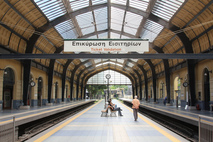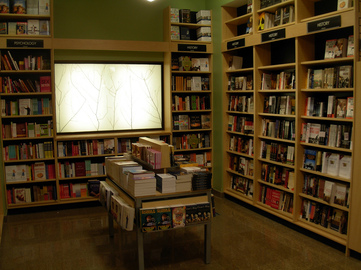
Luckily, I didn't need to travel away from home to get these perspectives, because in many ways the world came to me. Cambridge, where I grew up, may be a small market town but it manages to seem a bigger, more cosmopolitan place than it really should be because it is, in parts, quite multicultural. On my ten-minute walk to school, I used to pass a Chinese, Korean, Indian and Middle Eastern supermarket, followed by a Co-op and an old-fashioned greengrocers'. There was also a church, a chapel, a Hindu temple and a mosque. I don't think I can remember a year when I didn't know from friends at school when Ramadan or Chinese New Year were approaching. University felt like moving to a new town, because even though I was still in the same place, all my friends had travelled to be there from different parts of Britain and the world.
I think writers have always seen themselves as part of a greater world and not just their own locality. I've written about how my favourite writer, Derek Walcott, who did not leave St Lucia until he went to university in Jamaica, grew up seeing himself as part of a written tradition that spanned Europe, Russia and America. Many of the 19th-century writers I admire saw travel as an important opportunity. Here's Robert Louis Stevenson: "For my part, I travel not to go anywhere, but to go. I travel for travel's sake. The great affair is to move." And Mark Twain: "Throw off the bowlines. Sail away from the safe harbor. Catch the trade winds in your sails. Explore. Dream. Discover."
Now, I spend some time outside the UK each year because my family-in-law happen to be spread out all over Europe. I never see them quite as much as I'd wish, although the same is true with my own family who are mostly a few hours away in Britain. But I do get the chance to visit them every summer, and this is something I look forward to and plan for months in advance. The cheapest way to get across Europe, especially if you have to stop in different places on the way, is not by budget airline but by train or coach. This also means the journey is a big part of the adventure. That's a good thing if you like spending a long time on trains, and especially for a writer. As a general rule, the less money you've spent on the trip the more unpredictable the experience, and therefore the better the material you can get out of it afterwards.
Last year, I made a 35-hour train journey from the east of England directly to rural Sicily, during which I met a family from Naples who gave me an entire home-cooked dinner, was elected as simultaneous translator for three confused French women who only spoke French and two train staff who only spoke Italian, saw the sun rise over the back streets and railway sidings of Rome, and was woken at six in the morning (along with my friends the three French ladies, still with me) to be offered 'great deals on jewellery' by a strange man with a bundle of fake watches wrapped up in newspaper. I've crossed all kinds of cities without actually seeing them except for a few early-morning or late-night glimpses from the Metro or bus: Paris, Rotterdam, Brussels, Turin, Naples, Amsterdam, Basel. But I've also got to know many places as a second home that it never would have occurred to me to visit otherwise. On my first long trip, several years ago, I kept excitedly noticing little details - how the lampposts were different, the air was more humid, the food in the supermarkets was unfamiliar. Now, I still enjoy these details but without referring them back to the way things are done in my particular small town in Britain. They are just reassuring signs that the world contains many ways of doing things. And the truth is, identity is such a complex idea that if you travel far enough, you'll find people with whom you may have more in common, at a fundamental level, than the people who on the surface seemed just like you.
This summer, the trip will be just under 2,000 miles and will involve 60 hours of budget long-distance night trains - a new record. I'll be visiting family and friends in Italy, Austria, Hungary and Switzerland. And I'll try to record some of the places I see and adventures that take place along the way.
What about you? What is the longest or most eventful journey you've taken?

 RSS Feed
RSS Feed
